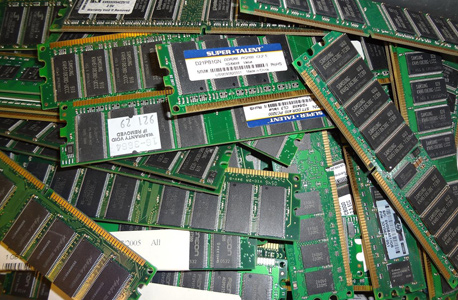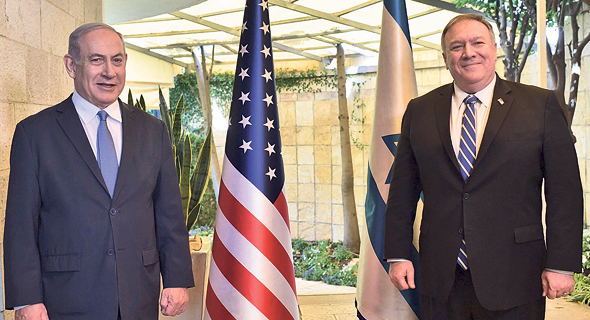Interview
Chip Wars: With significant Chinese investment in Israeli chip tech, the US could begin to question loyalties
Expert on China relations warns that Israel must do everything it can to avoid being seen as a risk to America’s national security
 Carice Witte. Photo: Yair Sagi
Carice Witte. Photo: Yair Sagi Why have computer chips become such a contested issue when it comes to U.S.-China relations. After all, it’s not oil or weapons?
Chips are the new oil, the next trigger when it comes to the relationship between the U.S. and China. It’s pretty clear why it is so. The writing is on the wall. Microprocessors are at the heart of all advanced technology. Leadership and control of the chip industry are not the sole requirements for becoming the dominant global superpower, but you can’t become one without it. The real battle between the U.S. and China on this front is not really about trade in computer chips, but about who will be the first to reach the cutting edge technologies.”
Do you agree with those who claim that things may escalate from being just a trade war into an actual war?
“Certainly. Taiwan could become the focus of a conflict between the states, TSMC, the world’s largest chipmaker could cause an actual war. As the company’s founder, Morris Chang, has said: ‘TSMC has become a turf that all geopolitical players want to secure.’ Since September 15, 2020, TSMC no longer sells chips to China’s Huawei, and that already led to an escalation: for the last two months, the Chinese have been regularly invading Taiwan’s aerial and maritime borders, while the Americans send out warning signals.
 Computer chips are the new oil. Photo: Pixabay
Computer chips are the new oil. Photo: Pixabay “The Chinese announced just this week that they are making technological independence one of the goals in their new five-year plan. The government has stated that by 2025 they are expected to produce 70% of their chips internally, without relying on imports. Today they produce barely a third of their chip requirements and over the last three years, China has imported $300 billion worth of chips.”
Is this a result of the American sanctions on Chinese manufacturers?
“China is capable of implementing its policies faster than any other country in the world because it has an immense resource in its human capital, which is hardworking, educated, readily available, and focused on fulfilling the plans that the government sets out. They enjoy both financial resources and strong leadership. Chinese President Xi Jinping is currently seen the same way as Mao Tse Tung was in the past: when he sets a goal, everyone follows through. The question now is what technological levels can they reach within five years, with the answer depending on the talent and knowledge they can pull in from places like Taiwan, Silicon Valley, and other places, including of course Israel.”
What is so special about Israel?
“Israel is one of the seven leading countries when it comes to chip production. There is a lot of knowledge here, as well as experience in chip manufacturing, because of Intel’s presence here, and it’s one of the reasons the U.S. is concerned about China getting involved with Israel. I estimate that as soon as the elections and Covid-19 are behind us, the Americans will initiate talks with the Israeli government.”
Israel is indeed the elephant in the room, how did we get caught up in this battle of titans?
“After the Chinese nearly received a franchise to build a desalination plant, which was prevented due to American pressure, it was the chip industry’s turn, because there are major Chinese investments in chip companies here and significant export of technology to China. For the Americans that’s a problem. They are beginning to raise questions about Israel’s loyalty in this regard. They expect us to protect their interests in the same way the U.S. protects Israel’s interests.”
- For foreign companies, understanding China’s annual plans is critical
- "Most of Israel’s successful startups aren't doing business in China"
- How Israelis can tame the Chinese lion: “It’s all a game of interests”
U.S. Secretary of State Mike Pompeo came here in May for a frantic visit that had to do not only with the desalination plant but also to Chinese investments in Israeli chipmakers. What do they expect us to do, say no to the Chinese?
“Some in the Israeli tech industry think that the trade war between the U.S. and China is a good opportunity to export more goods to China, but that attitude endangers Israel’s national interests because the Americans won’t let it happen.”
 U.S. Seceratary of State Mike Pompeo meets with Israeli Prime Minister Benjamin Netanyahu in May. Photo: Kobi Gideon/GPO
U.S. Seceratary of State Mike Pompeo meets with Israeli Prime Minister Benjamin Netanyahu in May. Photo: Kobi Gideon/GPO In such a scenario, what is to become of Intel’s factories in Israel, it being the largest employer in the country and exporting a billion dollars worth of chips to China every year?
“Intel is an American company and its future in Israel has less to do with China and more to do with its competitive position in the current chip market, seeing how it can not yet produce 7 and 4-nanometer chips here. If Intel can find a way to generate more income in China with its current capabilities of manufacturing 10-nanometer chips, it will help it stay here too. The U.S. has no problem with the Chinese getting 10-nanometer chips because it is no longer considered advanced technology. It is also an opportunity for the Israeli government to increase exports.”
What about the smaller Israeli tech companies, is there a way for them to accept investments from China and still export to the U.S.?
“At the moment, I don’t see a formula whereby a company that develops advanced chip technology can accept an investment from China and also operate in the U.S. Whoever is elected, either Biden or Trump, both are concerned about China’s presence and the American tendency is to see things in black or white: if you have Chinese money, we want to have nothing to do with you — there is no point in trying to prove that even though the money may be Chinese, you are not harming the U.S.’s security interests. We must do everything possible to avoid a situation whereby the Americans decide that we pose a risk to their national security.”
Is it not excessive to treat computer chips as a matter of national security?
“Chips can reach the same level as unmanned Aerial Vehicles (AUVs) The crisis may be similar to the one surrounding the sale of Phalcon surveillance jets in 1999. The export of advanced chips to China is even more critical than selling AUVs to China was 20 years ago. Israel must on one hand be wise when it comes to its asset, but also to realize that China acts differently than what is familiar and customary in the West, it changes things quietly and gradually, but those changes may be dangerous.”
When we talk about government intervention in defense exports or even in a tender for a desalination plant, it is acceptable to define them as strategic assets, but how do you justify intervention in the investment or contracts of private tech firms?
“Israeli companies can continue to maintain commercial relationships with both sides, but they need to be given limits. The government may be able to influence some things with regulations, but mostly it can signal to the business sector what’s permissible and what isn’t. Israel has a tendency to be insufficiently sophisticated when it comes to U.S.-China relations and its strategic position in the conflict surrounding the future of the chip industry. Israel’s technological leadership in fields such as chips and foodtech constitutes a strategic asset with real force behind it. It needs to learn how to manage and leverage it.”
What should Israel do?
“Israel needs to initiate a dialog with the U.S. government and not wait for Pompeo to land here with a cudgel and tell it what it can or can’t do. It should bring together someone from the U.S. and someone from Israel who has a good understanding of the Chinese. Israelis’ ignorance of the Chinese and the lack of a comprehensive national strategy leads to mistakes.”
Can you give an example?
“Take for instance the sale of Tnuva to Bright Food. Israelis may think it wasn’t such a good deal for the Chinese, but for them, it was a strategic win because it gave them access to an Israeli foodtech incubator through a tender last year. The significance of them winning the tender was missed by Israelis, but for the Chinese is a matter of national security strategy to help ensure food security for 1.4 billion people they have to feed every day. From the Israeli perspective, it was about who offered a higher bid and they preferred to award it to the Chinese over Erel Margalit’s group. It’s fine to grant the Chinese involvement in the incubator, but the government of Israel, who’s taxpayers' money are invested in the incubator, could have reaped a practical political bounty.
 Tnuva products displayed on a Bright Food stand
Tnuva products displayed on a Bright Food stand “It was the same with the Technion foul-up of 2013, which took place because nobody consulted with anyone who understands a thing about China. Peretz Lavie (the Technion’s president SS) requested a $200 million donation to set up a campus in China, but Chinese billionaire Li Ka Shing lowered the donation to $130 million and conditioned it on the Technion branch being established in a certain province in southern China. Israel failed to understand that this was a critical achievement, granting the Chinese an innovation growth engine and access to knowledge that no other university could since the Americans rejected such a project with MIT or CalTech. Israel could have not only asked for more money but set conditions of its own, maybe even demand that Russia refrain from selling the S-400 anti-aircraft systems to Syria.”
Could this whole conversation be irrelevant if Joe Biden ends up winning the elections and Donald Trump and his trade war and Make America Great Again slogan become history?
“The issue of China, the trade war in general, and the sale of advanced chips is one of the only issues on which there is bipartisan consensus. If Biden becomes president, there may be a shift in style and fewer tweets, but the essence won’t change. Things may move more quickly. We can’t forget the Phalcon sale crisis took place when the Democrats were in office.”



